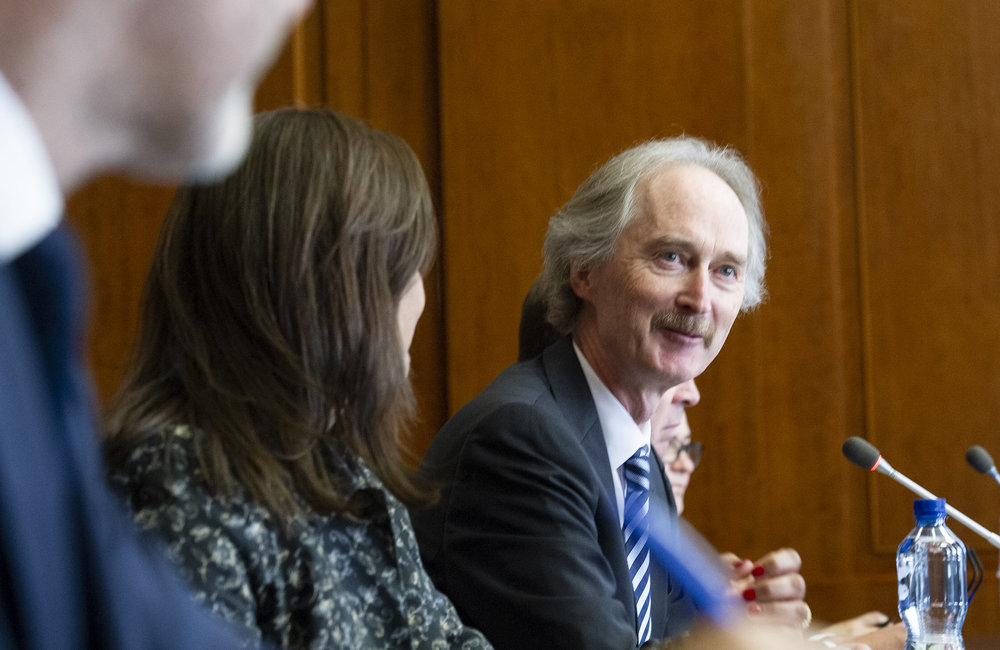To discuss the resumption of the Syrian Constitutional Committee, the UN envoy to Syria, Geir Pedersen, recently held a meeting with Iranian Foreign Minister Hossein Amir-Abdollahian. This meeting is part of a series of shuttle meetings that Pedersen has been conducting lately, bridging the gap between two significant Syrian tracks.
The first track revolves around the evolving relationship between Arab states and the Assad regime. Meanwhile, the second track focuses on the quadripartite meetings involving Turkey, Iran, Russia, and the Syrian regime, aimed at fostering dialogue and taking constructive steps.
In a Twitter statement on Sunday, Pedersen expressed satisfaction with the “comprehensive discussions” he had with Abdollahian, Ambassador Khaji, and other high-ranking officials regarding Syria. He further acknowledged Iran’s assessment of recent diplomatic developments in Syria and the region, along with its support for the resumption of the Constitutional Committee’s work.
To Turkey
Pedersen mentioned his discussions with senior Turkish officials regarding Syrian matters, following his previous contacts with senior Russian officials. He emphasized the significance of coordination between the United Nations and the countries supporting the Astana negotiations in order to facilitate the resumption of the Constitutional Committee’s work and propel the political process forward.
The prospects of the Constitutional Committee’s process resuming in the next phase remain uncertain.
Syrian Constitutional Committee
According to the United Nations, the recent statement from Amman involving Saudi Arabia, Jordan, the Syrian regime, and Iraq referenced a clause that called for the activation of the Syrian regime.
Pedersen further commented, expressing appreciation for recent phone conversations with Saudi Foreign Minister Faisal bin Farhan and Egyptian Foreign Minister Shoukry. He also mentioned his communication with Jordanian Foreign Minister Safadi, highlighting the importance of close coordination between the United Nations and Arab countries in reaching agreements on future steps.
“The UN remains committed to working with all partners, including the Syrian parties, Arab states, the sponsors of the Astana negotiations, and Western countries, to initiate genuine confidence-building measures,” Pedersen affirmed. He emphasized their dedication to advancing the renewed political process in alignment with Security Council resolution 2254.
Pedersen is widely regarded as the originator of the “step-for-step” concept, which entails Arab countries gradually restoring relations with the Syrian regime. This policy involves Washington and its allies considering the lifting or easing of certain sanctions on the regime, contingent upon Moscow’s efforts to encourage Assad to take steps towards reviving the stagnant political solution process while avoiding military escalation.
This article was translated and edited by The Syrian Observer. The Syrian Observer has not verified the content of this story. Responsibility for the information and views set out in this article lies entirely with the author.


